Emergency Dentist Midlothian
Get Your Dental Emergency Handled Right Away!
Have you experienced a dental emergency at some point in your life, but you weren’t sure what to do? Did you visit the emergency room, only to be told to go to a dentist? Dental emergencies don’t happen often, but when they do, it’s incredibly important to have a dentist you can rely on for your visit. If you’re experiencing a cracked tooth, an oral infection, or dental pain, don’t wait to call Dr. Johnson and his team! We can provide you with emergency dentistry in Midlothian right away so you can get back to enjoying a happy, healthy, and pain-free smile.
Why Choose Dental Center of Midlothian for Emergency Dental Care?
- Oral Conscious & Nitrous Oxide Sedation Available
- Talented & Experienced Dentist Focused on Your Comfort & Health
- Same-Day Dental Appointments Available for Emergency Patients
I Need a Checkup & Cleaning Smile Design I Have a Cavity or Broken Tooth I am Missing One or More Teeth I am Scared of the Dentist View Our Services
What to Do In a Dental Emergency
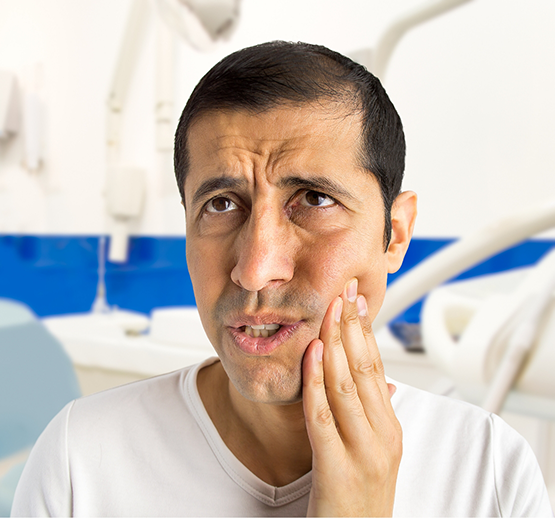
When a dental emergency strikes, whether it happens to you or a loved one, it’s crucial that you remain calm and act quickly. Your first order of business should be contacting our office. From there, here’s what you should do:
- Schedule a same-day appointment: We go above and beyond to see our emergency patients the same day they call us. After scheduling your appointment, a member of our team can guide you over the phone on what steps you should take next to manage your situation.
- Get an emergency exam with Dr. Johnson: As soon as you reach our office, Dr. Johnson will examine your mouth and take any necessary X-rays to learn more about your dental emergency.
- Review the findings and make a plan: Johnson will then review his findings with you and fully explain your treatment options, working with you to create a treatment plan.
- Get the care you need: We’ll get to work right away to alleviate your pain and protect your smile, no matter what your dental emergency is. If needed, we also offer sedation options to help nervous or uncomfortable patients feel as relaxed as possible while we take care of them.
The Most Common Dental Emergencies
Dental emergencies typically appear in the form of a decayed or infected tooth (long-term emergency) or sudden trauma (short-term emergency). Both require their own treatment needs, which is why you should always call our dental office the moment they appear. Not only can we get you scheduled for an appointment, but we can provide additional guidance to manage your symptoms beforehand. Below, you’ll find some of the most common dental emergencies we treat. If you experience these or any other worrisome symptoms, don’t hesitate to give us a call immediately.
Understanding the Cost of Dental Emergencies
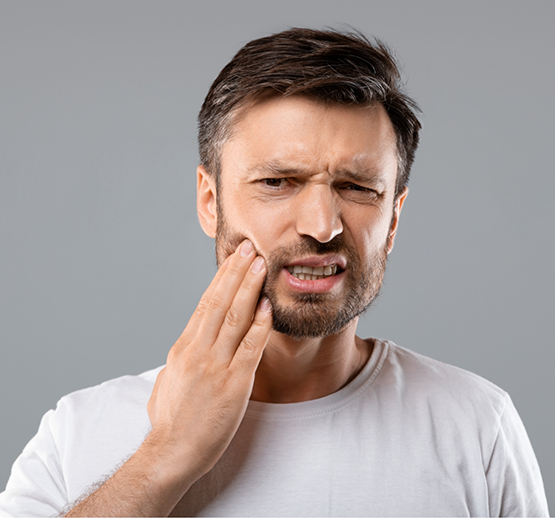
Dental emergencies are already stressful enough without having to worry about their financial components. At Dental Center of Midlothian, we strive to provide hassle-free, affordable, and pain-relieving emergency dental care that helps restore the health of your grin. That’s why we offer several different financial options and payment plans. Throughout your appointment, we’ll keep you up to date on our findings and let you know what the cost of treatment will be. If you have any additional questions or require urgent dental care, don’t hesitate to contact our office.
What Determines the Cost of Emergency Dental Care?
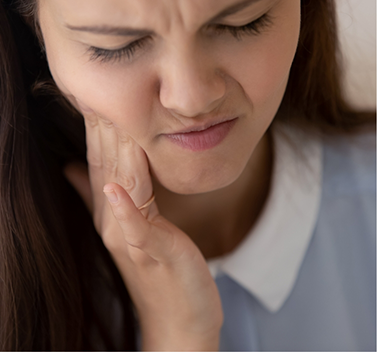
There’s no set price for treating a dental emergency because they can come in many forms. Here are some common factors that affect the cost of your visit:
- The severity of the damage to your mouth.
- Your current dental insurance coverage.
- Whether you require follow-up treatments or appointments.
Once we have completed our initial examination, we’ll discuss each of these factors with you and address any of your concerns. Our dental staff are more than happy to help you navigate your financial and insurance options to ease your stress.
Several Hassle-Free Ways to Pay
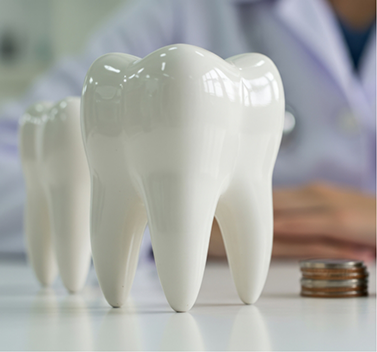
We believe that nobody should have to worry about how they’re going to be able to pay for their emergency dental care, which is why we strive to accommodate anybody’s financial situation. Here are some of the many hassle-free ways to pay that we offer:
- Our in-house dental plan covers the cost of one adult emergency exam a year and includes 15 percent off all additional regular-priced services.
- Make payments online through our portal.
- Apply for additional financing through CareCredit or Lending Point.
- File a claim through your dental insurance. We are an in-network provider for several major PPO plans.
If you have any questions or would like to learn more, you can visit our new patient page for payment information or give our team a call.
Taking Care of Emergencies When They Occur

Some patients are tempted to ignore their dental issues to see if they cure themselves. Unfortunately, this often results in the need for more invasive treatments down the road. That’s why we recommend coming in sooner rather than later. Oftentimes, the earlier we’re able to diagnose and treat a problem that’s giving you trouble, the more cost-effective the entire process will be.
How to Prevent Dental Emergencies
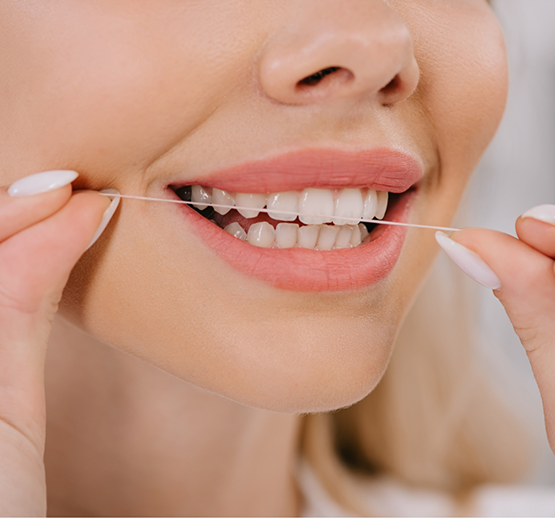
In most cases, you can prevent a dental emergency by practicing proper prevention at home and our dental office. Daily brushing and flossing prevent plaque buildup, which is the main cause of cavities and oral infections. Visiting our dental office once every six months helps us catch problems before they become emergencies. Furthermore, wearing a mouthguard protects your teeth while playing contact sports, and not using your teeth as a tool prevents most serious problems.
Maintain Great Oral Hygiene Habits at Home
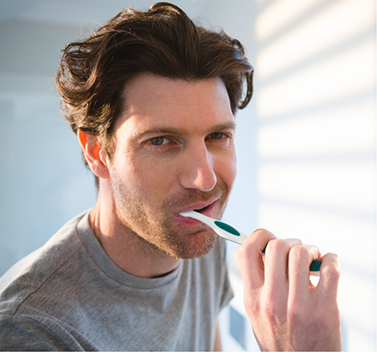
If you go even 12 hours without brushing and flossing, plaque in your mouth hardens into tartar. Because you can’t get rid of tartar by yourself (only a dental professional can remove it), the bacteria in it have ample time to damage your teeth and gums by causing painful infections. To prevent this, brush twice a day for two minutes at a time, taking care to clean the surfaces of each tooth. Flossing daily can remove plaque from hard-to-reach areas.
Also, be sure to attend a dental checkup and cleaning at least twice a year. Not only do cleanings remove built-up plaque and tartar, but regular exams allow Dr. Johnson to spot and treat problem areas before they have the chance to spiral into full-blown emergencies.
Watch What You Eat

Cavities don’t always hurt in the early stages, but they can quickly spiral into a monster of a toothache if the decay reaches the sensitive pulp in the center of the tooth. Naturally, cutting down on sugar can drastically reduce this risk. It’s perfectly fine to indulge from time to time but be sure to consume these things in moderation. Sipping sugary beverages through a straw can minimize direct contact with the teeth. Try to brush your teeth after eating or drinking these items, but if you can’t, at least swish some water around in your mouth.
Don’t bite down on anything very hard, like peppermints or nut shells, as this could result in broken teeth. Similarly, you should also avoid using your teeth to open packages, hold bags of groceries, and chew on inedible objects such as pen caps.
Protect Your Pearly Whites

Contact sports like martial arts or football carry a high risk of mouth injuries that could result in a tooth getting loosened or even knocked out entirely. To protect your smile from injury, wear a mouthguard whenever you engage in this sort of activity.
Your teeth might also be at risk for damage while you’re asleep. Many people suffer from bruxism (unconscious teeth grinding or jaw clenching that often happens while sleeping). This can wear down or weaken your enamel. Wearing a nightguard to bed can provide cushioning between your top and bottom teeth, avoiding this problem.
Dental Emergency FAQs
Should I Go to the ER for a Dental Emergency?
The answer is…it depends. If you suffer from a broken or fractured jaw, continuous bleeding from the mouth, or increased swelling that is making it difficult to breathe or swallow, get yourself to the closest emergency room for immediate medical attention.
Otherwise, you will be fine to call our office and schedule an appointment. We will work to get you in as quickly as possible so that you will achieve relief from the pain.
Why Is Seeing a Dentist Better Than Going to the ER for a Dental Emergency?
Your emergency dentist is not only more knowledgeable but also trained in handling all types of dental injuries. Apart from the fact that you will be working with someone who knows you personally and can offer start-to-finish dental care, you will avoid long hours waiting in a lobby. Instead, you will have a set time in which you can come in and get the care you need without sitting among others who may be very sick.
Should I Still See a Dentist If My Pain Is Gone?
Naturally, any time you feel pain in your mouth, you should contact us. However, if this discomfort goes away on its own, you may be tempted to cancel the appointment. Don’t do this. The reason is that there could be an underlying cause for your pain that cannot be seen by the naked eye. Pain doesn’t just occur for no reason, so even if it does dissipate, make sure you let us take a look. By examining your oral cavity and reviewing digital X-rays, we will be able to determine if anything is happening beneath the surface.
What Should I Do If I Have a Dental Emergency While on Vacation?
First, find a local dentist who can see you and offer immediate dental care. You don’t want to spend your entire vacation in pain, so it’s best to get in to see someone who can minimize discomfort and fix your particular issue. Second, make sure to call us and alert us to the situation. This will allow us to discuss what kind of treatment you received and determine if you will need additional care when you return.
What Should I Do If I Have a Dental Emergency But I’m Uninsured?
No matter the type of injury, forgoing treatment will only end in additional time and money spent attempting to save your oral health from further deterioration and damage. The sooner you seek treatment, the better off you and your smile will be. If you do not have dental insurance, we will be happy to assist in identifying additional payment methods that can be used to cover your out-of-pocket expenses.
